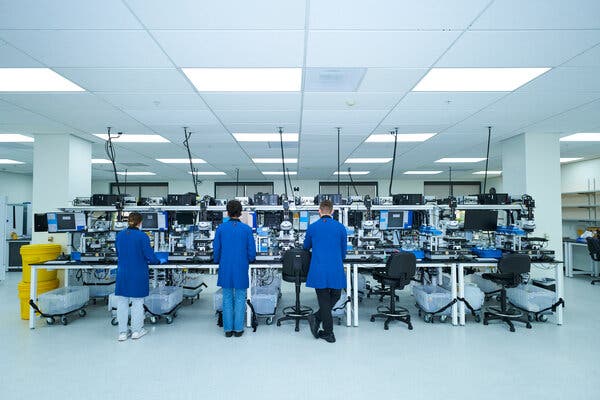The laboratory at Terray Therapeutics is a symphony of miniaturized automation. Robots whir, shuttling tiny tubes of fluids to their stations. Scientists in blue coats, sterile gloves and protective glasses monitor the machines.
But the real action is happening at nanoscale: Proteins in solution combine with chemical molecules held in minuscule wells in custom silicon chips that are like microscopic muffin tins. Every interaction is recorded, millions and millions each day, generating 50 terabytes of raw data daily — the equivalent of more than 12,000 movies.
The lab, about two-thirds the size of a football field, is a data factory for artificial-intelligence-assisted drug discovery and development in Monrovia, Calif. It’s part of a wave of young companies and start-ups trying to harness A.I. to produce more effective drugs, faster.
